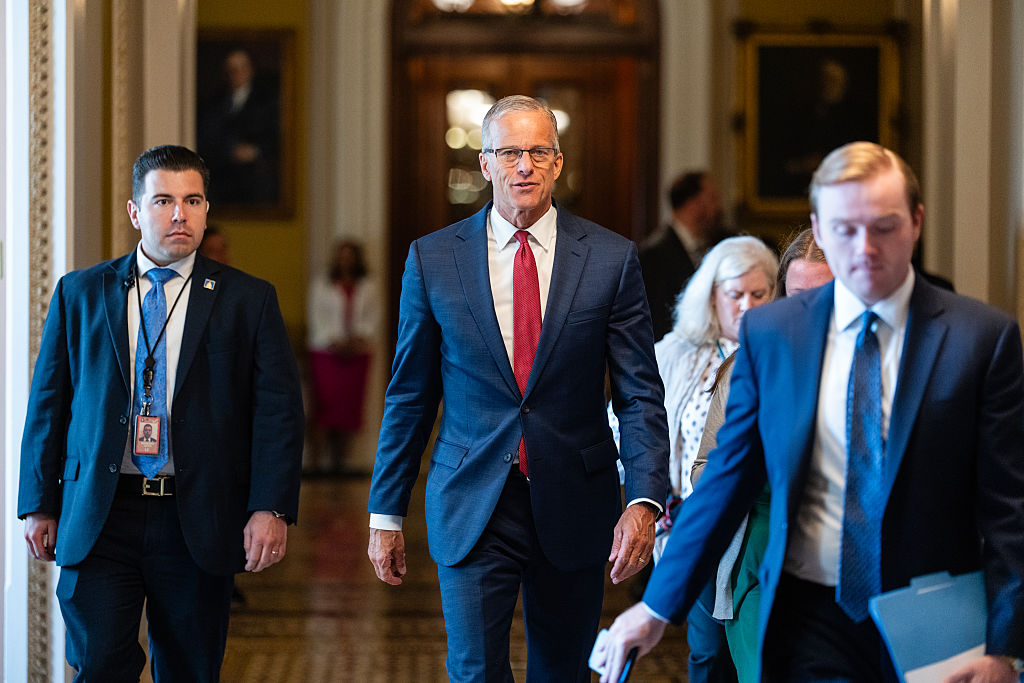The Republican-controlled U.S. House of Representatives early on Friday passed President Donald Trump’s $9 billion funding cut to public media and foreign aid, sending it to the White House to be signed into law.
The chamber voted 216 to 213 in favor of the funding cut package, altered by the Senate this week to exclude cuts of about $400 million in funds for the global PEPFAR HIV/AIDS prevention program.
Only two House Republicans voted against the cut, Representatives Brian Fitzpatrick from Pennsylvania and Mike Turner from Ohio, along with Democrats.
“We are taking one small step to cut wasteful spending, but one giant leap towards fiscal sanity,” said Representative Aaron Bean, a Florida Republican, advocating for a similar spending cut package from the White House every month.
House Minority Leader Hakeem Jeffries countered that the funding cut “undermines our ability to keep our people safe here and to project America’s soft power all over the globe,” and argued rural Americans’ access to emergency information on public radio will be diminished.
The funding vote was delayed for hours amid Republican disagreements about other legislation, and calls from some members of the party for more government transparency about the deceased convicted sex offender and disgraced financier Jeffrey Epstein.
To satisfy the Epstein-related concerns without holding up the funding cut bill any longer, Republicans on the House Rules committee introduced a resolution that calls for the release of Epstein documents by the U.S. attorney general within 30 days.
“It’s a sound, good-faith resolution that ensures protections for victims and innocent witnesses,” said Representative Virginia Foxx from North Carolina, the Republican leader of the rules committee.
But the top Democrat on the rules panel, Representative Jim McGovern from Massachusetts, blasted the resolution as a “glorified press release” because it lacks an enforcement mechanism to make the Justice Department comply.
When the chamber finally voted on the funding cut, it was the second close House vote on Trump’s request to claw back the funds previously approved by Democrats and his fellow Republicans in Congress.
In June, four Republicans joined Democrats to vote against an earlier version of the rescissions package, which passed 214-212.
House Republicans felt extra pressure to pass the Senate version as Trump’s administration would have been forced to spend the money if Congress did not approve the cuts by Friday.
The $9 billion cut amounts to roughly one-tenth of 1% of the $6.8 trillion federal budget.
Republicans say the foreign aid funds previously went to programs they deem wasteful, and they say the $1 billion in public media funding supports radio stations and PBS television that are biased against conservative viewpoints.
PREDAWN SENATE VOTE
In a 51-48 Senate vote before dawn on Thursday, only two Republicans, Senators Susan Collins from Maine and Lisa Murkowski from Alaska, voted against the funding cut.
Both questioned why Congress — constitutionally responsible for the power of the purse — was taking direction from the executive branch to slash funding.
“There’s a good reason I think that we haven’t seen a successful rescissions package before the Senate in almost 33 years,” Murkowski said in a Senate floor speech this week, “It’s because we’ve recognized that, ‘Hey, that’s our role here.’ “
Funding cuts are regularly approved with bipartisan support in Congress through the appropriations process.
But Democratic leaders this week warned this one-party cut could damage the necessary bipartisanship to pass funding bills.
Funding bills require bipartisan support to reach the necessary 60-vote threshold for government funding legislation to pass the Senate, but a rescissions package only requires a simple majority in both congressional chambers to pass.
Trump administration officials have promised to send more rescissions requests to Congress if the foreign aid and broadcasting package succeeds.
This week’s funding clawback represents only a tiny portion of all the funds approved by Congress that the Trump administration has held up while it has pursued sweeping cuts.
Democratic lawmakers say the administration has blocked more than $425 billion of spending approved by Congress since Trump’s second term began in January.
After the measure cleared the Senate, the White House’s Office of Management and Budget Director Russ Vought said more such spending-cut requests are “likely” to be made by the Trump administration.
Murkowski, Collins and some Democratic appropriators also condemned a Thursday comment Vought made to reporters at a Christian Science Monitor breakfast, where he said the “appropriations process has to be less bipartisan.”
“The best way for us to counter what has been said by the OMB director is to continue to work in a bipartisan way,” Collins, who chairs the Senate appropriations committee, said as her committee debated government funding for the next fiscal year.
(Reuters)














